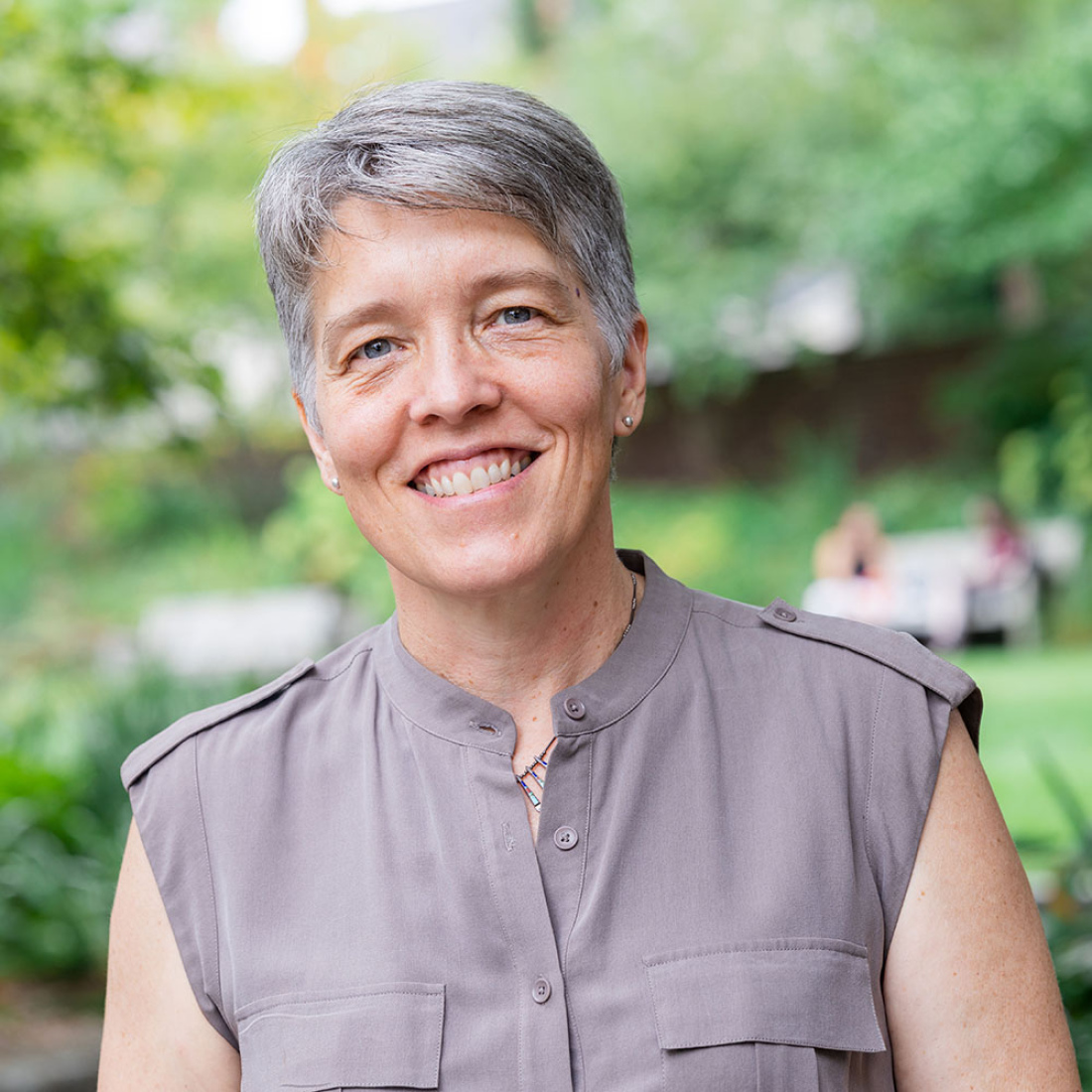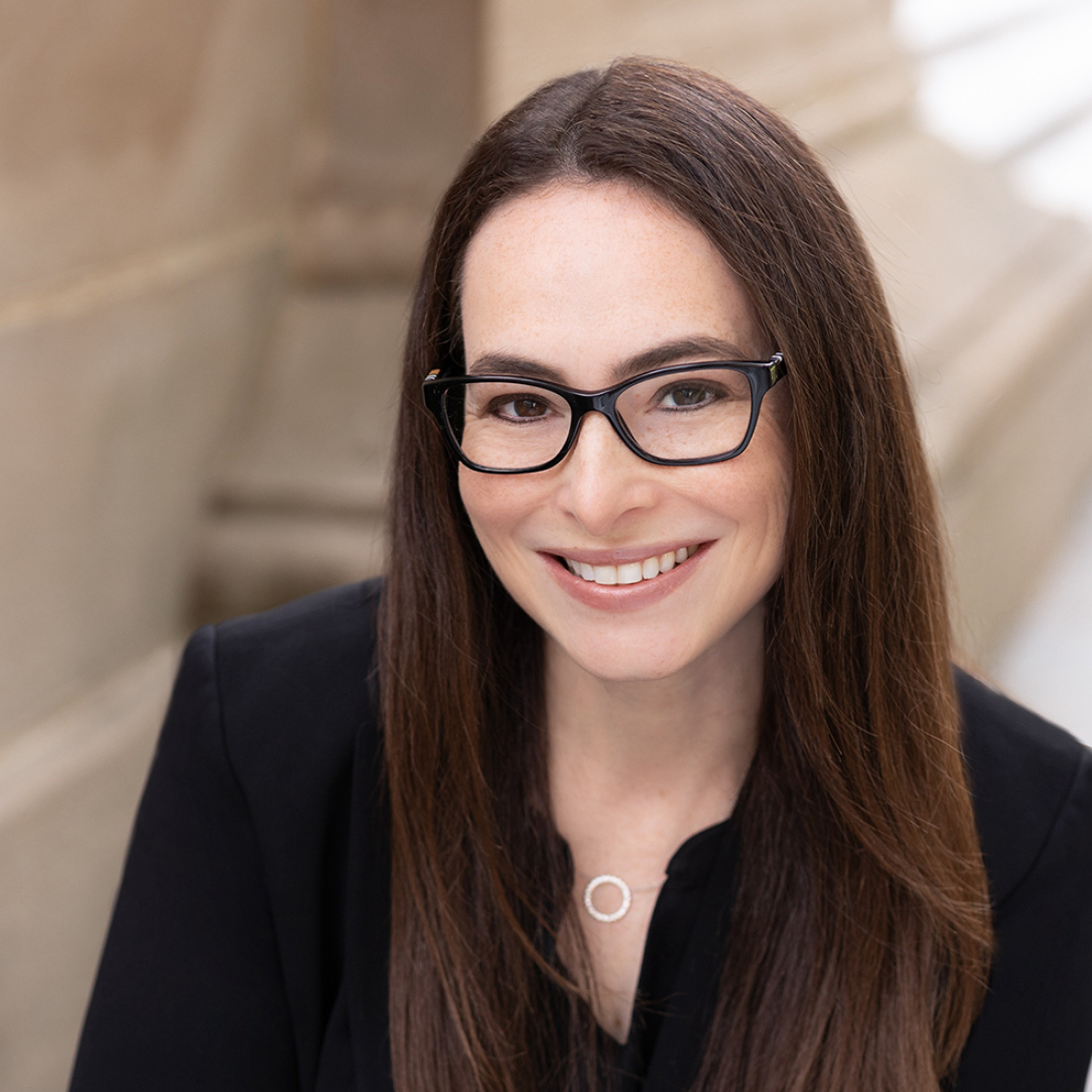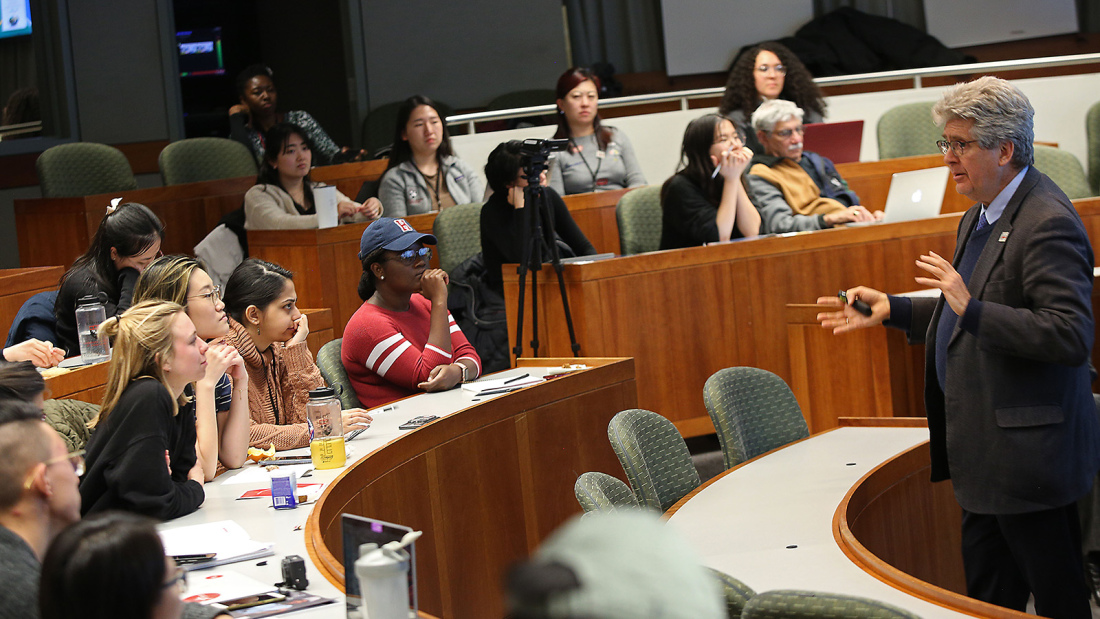
Tips for Online Students , Tips for Students

Master’s vs PhD — These are the Main Differences
Updated: July 18, 2022
Published: October 31, 2019

The consideration between earning a master’s vs PhD is not always an easy choice. While many careers and personal aspirations may be complete with just an undergraduate degree (Associate’s or Bachelor’s), a lot of people continue their higher education to obtain graduate degrees. These include a master’s and/or a PhD.
Neither a master’s degree nor a PhD is considered to be a walk in the park. Therefore, it’s useful to understand why you would earn either and then decide how far to go.

Photo by Good Free Photos on Unsplash
Definitions: master’s vs phd.
Bost a master’s and PhD are defined as postgraduate degrees, but they require different commitments and styles of learning.
1. Master’s Degree:
Mostly all master’s degrees will require the completion of an undergraduate bachelor’s degree to enroll. They generally all share the same common requirement for a thesis or dissertation to graduate.
Earning a master’s degree through a taught program will result in the completion of a Master of Art (MA), Master of Science (MS), or Master of Philosophy (MPhil). For those who earn their master’s degree through research, they will earn a Master of Research (Mre), in a tailored field of study. There are also degree-specific master’s programs like Master of Business Administration (MBA) and Master of Education (M.Ed).
After earning a master’s degree, the next step is a PhD, which entails both working and performing research at an institution. A PhD is an abbreviation for “Doctor of Philosophy.” It is the highest academic degree one can achieve. As such, it is a time-consuming pursuit that requires a lot of studying and research.
You may be wondering, “Do you need a master’s to get a PhD?”
Technically, the answer is not always. Some students skip a master’s and go straight for their PhD, but they may lack research experience. While it could save money, the transition between a bachelor’s and a PhD is incredibly sharp. It may be harder to complete a PhD without the experience from a master’s.
Yet, some institutions may allow for the possibility to earn both your master’s and PhD in conjunction with one another. This will alleviate the transition between skipping a master’s and going straight to earning a PhD.
Should You Get a Master’s or PhD?
There are many considerations to factor when deciding between a master’s of PhD. For starters, it’s useful to consider the amount of time it will take, the cost, and the benefits and disadvantages of each. It is also of utmost importance to explore your own personal goals and reasons for wanting a graduate degree.
If your desired career of choice requires a PhD, like becoming a university professor, then you have your answer. If you want to start a business and benefit by networking while in school, a Master of Business Administration (MBA) could be a good idea. Consider what you want to pursue as a career and find out the requirements first.
Another useful thing to note is that a master’s degree can be used for a shift in careers. For example, if you attended college and earned a bachelor’s degree in humanities, but now you want to pursue science, you can still earn your master’s degree in a scientific discipline. On the other hand, a PhD is tailored to your field of study and specialty, so it will require that you are sure of your direction when you first earn your master’s degree.
Length of Time
A typical master’s degree program takes about two years full-time. However, there are accelerated programs that can be completed in just a year or so.
A PhD, in general, requires five to six years of studying, teaching, and research. However, it may even take some students up to eight or nine years to graduate. With this significant investment in time, it’s necessary to know if a PhD is right for you before starting.
The cost of both programs varies by institution and enrollment status of part-time versus full-time. However, since a PhD takes longer to complete, it will end up costing more. With that said, if you look into your return on investment, a PhD could end up yielding a higher salary, and therefore end up “costing less.”
Additionally, there is also the possibility of being paid to complete your PhD. Some students may receive an academic stipend, a university fellowship or apprenticeship or a reduced fee to earn their PhD while completing research (or teaching) at an institution. It’s also possible to get financial aid through a scholarship or grant.
As tuition rates continue to rise, it’s useful to look into alternative institutions for affordable education. For example, the University of the People offers a tuition-free master’s program in Business Administration and Education. This means you can study 100% online and graduate for less than the cost of most programs.
Weighing the Benefits
When comparing the two degree types, here are some benefits of each:
- Career-oriented
- Can open the door for more job opportunities
- Costs less than a PhD
- Takes less time than a PhD
- Helps you stand out from those with only an undergraduate degree
- You can perform research in your field of choice
- You become an expert in your field
- The prefix Dr. is added to your name
- You can teach in academia at the highest level
Required Commitment and Reasons to Pursue
Both a master’s and a PhD require a huge amount of hard work and utter commitment. You must be dedicated and motivated to complete either degree. Since most careers only may require a bachelor’s degree, having a master’s or PhD will set you apart from the competition. However, this should not be the sole reason to pursue either.
You may be wondering why would you earn either degree. Here’s a look at some motivational factors:
Reasons to Study for a Master’s
- Your career requires it (see next section)
- You want to advance your subject knowledge
- You want to experience graduate school and network with peers
Reasons to Study for a PhD
- You want to contribute new research to your field of choice
- Your career requires a PhD
- You want to earn the title of Dr.

Photo by Online Marketing on Unsplash
Required degrees by career.
Most people are motivated to pursue higher education because their desired careers require they do so. Here, we will break down those fields that require the completion of a master’s degree as it’s high on the list of reasons why to get one.
- Education Administration: To work as an administrator in an educational institution, you need to hold an advanced degree. A Master’s in Education (M.Ed) will provide you with the necessary knowledge and required skills to succeed in the field.
- Executive Level Business: A Master’s in Business (MBA) will not only place you ahead of the competition to land high-level positions in the field of business, but it can also be the jumping off point for becoming your own boss.
- Environmental Science: With issues in climate change and technological advancement, careers in Environmental Science are growing. As with most scientific careers, it requires a master’s degree where you will learn Applied Ecology, Environmental Policy, Environmental Chemistry, and more.
- Mental Health: To become a licensed practitioner and assist in mental health counseling, you will continue your education through a master’s degree in the field.
- Physical Therapy: Employers of physical therapists often prefer them to obtain a master’s degree in the discipline as the field is highly specialized.
Of course, some careers require a PhD. These careers are easy to spot because they have the prefix Dr. in front of them or the suffix like J.D. (Juris Doctor). To become a lawyer, doctor of medicine, veterinary medicine or psychologist/psychiatrist, you must obtain a PhD in the respective field.
Salary Differences Between Master’s and Ph.D. Graduates
According to a study performed by the Georgetown University Center on Education and the Workforce , the overall evidence shows that the higher the degree you have, the higher your salary potential. However, the differences vary by subject level and field.
In general, the expected lifetime earnings of those with each degree level is as follows:
- High School Diploma: $973,000
- Bachelor’s Degree: $1.3 million
- Master’s Degree: $2.7 million
- Doctorate Degree: $3.3 million
The Bottom Line
Aside from the financial cost and length of time, the opportunity to earn a master’s and a doctorate degree can offer several benefits.
However, it is an undertaking that requires a lot of dedication and motivation on behalf of the student. As such, it’s important to perform research on your desired career’s requirements, as well as your personal interest in pursuing either a Phd vs master’s.
Related Articles

- Masters vs PhD – Differences Explained
- Types of Doctorates
The decision of whether or not to pursue a Masters or PhD (or both) after you complete your undergraduate studies is not necessarily a straightforward one. Both are postgraduate degrees but are different in terms of the academic experience and the career paths taken afterwards.
In short, a Masters degree involves a year of study, primarily through taught lectures and a final dissertation research project, whilst a PhD (also referred to as a doctorate degree) is a three-year commitment of independent research on a specific subject.
There’s more to it than that, however – read on for more information.
What Is a Masters Degree?
A Masters degree is the next level of education after the completion of an undergraduate degree, commonly known as a Bachelors.
These degree levels are often referred to in terms of cycles so that a Bachelor’s is a first-cycle degree, a Masters is a second-cycle and finally, a PhD is the third-cycle of higher education (and the highest).
Masters degrees demand an intense period of study, usually centred around a core series of lectures and taught modules, coupled with coursework assignments and exams, followed by the completion of a contained research project usually taking students 3-4 months to complete.
These types of degrees are attractive to recent graduates who want to delve deeper into their specific field of study, gaining some research experience and more specialised knowledge beyond what an undergraduate degree can offer.
Equally, some pursue a Masters degree program in a subject that is only tangentially related to their Bachelors degree, helping them gain a broader depth of knowledge.
These degrees also serve as a significant stepping stone for those already in employment who want to progress their current career development and earn a higher salary. They can also be an excellent method for helping in changing careers completely by learning new skills and subject knowledge.
What Is a PhD Degree?
A Doctor of Philosophy (PhD) is the highest academic degree that can be awarded and is the third and final cycle in the progression of higher education.
A doctoral degree is earned on the basis of producing a significant, independent and novel body of work (a Thesis) that contributes new knowledge to a particular research topic.
These are research degrees that are a significant investment of a candidate’s time, resources and energy and are all but a pre-requisite for anyone considering a career in academia, such as eventually becoming a professor.
There are some exceptions to this, such as those with a medical background who may earn an MD (Doctor of Medicine), which is the equivalent of a PhD.
Doctoral degrees can also have a significant positive impact on career development outside of academia, especially in fields such as engineering, business and finance that have a high demand for highly qualified and capable people.
A graduate student engaged in PhD study is commonly known as a PhD student, PhD candidate or doctoral student.
What are the Benefits of a Masters Degree?
There are several reasons one might consider doing a Masters degree rather than a PhD in their graduate education. These include:
- It takes approximately a third of the time to do compared to a doctorate degree and costs less too.
- It’s a good way to differentiate yourself from those that hold only an undergraduate degree without having to commit to a substantial research degree.
- The end goal is more career-focused as opposed to research-focused. For example, it is practically an ‘easier’ route to changing or progressing your career if that aligns with your professional goals.
What are the Benefits of Doing a PhD?
You may continue on into a doctoral program after a Masters or you may even dive straight in after completing your undergraduate studies. So, what are the advantages of completing this third-cycle?
- You’ll have developed a wealth of transferable skills at graduate school, such as effective communication of complex concepts, multi-tasking time-management and the ability to adapt to and solve unexpected problems.
- A doctorate helps to establish you as an expert within your chosen subject area; your work will hopefully have furthered the knowledge in this.
- It will open up career paths and teaching positions within academia that may otherwise be very difficult to get a hold in (although these career paths will still be very competitive).
- You can add the title ‘Dr’ in front of your name!
Which Degree Is More Impactful: A Masters or a PhD?
On paper, the answer should be clear: A doctorate degree is the highest degree you can earn, so has more impact than a Masters, which in turn has more impact than a Bachelors.
The reality is that the size of the impact (if any) really depends on the subject area and the career path you choose (if the measure of impact is how it positively improves your career prospects, that is).
For someone with aspirations of becoming a professor, a PhD will be of greater value than a Masters alone.
Equally, it’s also possible that someone with a PhD entering a different field or one that doesn’t require a PhD may find that their degree has no bearing on their career or in some cases may even be seen as a ‘negative’ with a concern of the person being ‘over-qualified’ for a position. There are many scenarios in which professional experience would be more valuable to an employer than a doctorate degree.
Check out the links below to our interviews with Prof. Debby Cotton and Dr Nikolay Nikolov to read their experiences of when a going through a PhD program has had a clear benefit (Prof. Cotton) and when it hasn’t been helpful (Dr Nikolov).

Do You Need to Have a Masters to do a PhD?
This really depends on the university, department and sometimes even the project and supervisor.
From a purely application process perspective, some institutions may formally require you to hold a Masters degree relevant to the subject of the PhD project before you can enter their doctoral program.
In another scenario, most universities are unlikely to accept candidates that were awarded below a 2:1 (in the UK) in their undergraduate degree but may consider someone who has ‘made up’ for this with a high-grade Masters.
Lastly, some universities now offer PhD programmes that incorporate an additional year of study in which you would complete a Masters degree before carrying directly on into a PhD project. As you’d expect, even if a university doesn’t formally require you to hold one, a Masters degree can help separate you from other applicants in being accepted on the project.
Check out our detailed guide to doing a PhD without a Master’s .
Why Do a Masters before Your PhD?
Even if you don’t need to have one, it could still be beneficial to begin your postgraduate study by doing a Masters first before you embark on your doctorate journey.
As mentioned previously it’ll help you stand out from applicants that don’t have one, but beyond that, it’ll give you a taster of what research life could be like, especially if you stay at the same university and department for your PhD.
The one-year commitment (in the UK at least) of carrying out a Masters first, and in particular your research project, will help you better understand if this is truly something you want to commit the next three or more years to.
You’ll learn some of the skills of independent research, from performing detailed literature searches to more complex, analytical writing.
At the end of it, you should be in a stronger position to consider your options and decide about whether to continue into a PhD at graduate school.
Finding a PhD has never been this easy – search for a PhD by keyword, location or academic area of interest.
How Long Does It Take to Get a Masters Degree?
In the UK, a full-time Masters degrees take students one calendar year to complete: The programme of study usually starts in September, the final research project the following April and final project viva around August. Part-time degrees are usually double the time.
How Long Does It Take to Get a PhD?
In the UK, most PhD projects take 3-4 years to complete , as reflected by the majority of funded projects offering stipends to cover living expenses of about 3.5 years.
For many reasons, projects may end up taking longer to complete, however. This might be because of difficulties in collecting enough data, or if the project is being done part-time.
Which One is More Expensive to Do?
As you’d expect, as a PhD takes three times as long to complete as a Masters degree, it will cost you more to do as far as university fees are concerned.
Another thing to consider is that many PhD projects come with some level of funding equivalent to a low salary, which may cover the cost of tuition fees and living expenses, whilst it is usually more difficult to obtain funding for Masters study.
Conversely, a Masters graduate may progress into a higher (versus PhD funding) salary sooner whilst a PhD student will endure three years of a comparatively low income.
A Masters vs a PhD: Conclusion
If you’re considering continue further graduate study after your undergraduate degree, the question of doing a Masters vs a PhD is likely to come up. They are both considered an advanced degree, each with their own advantages.
There are benefits to doing either of these graduate programs or even both of them; your decision here can be easier if you have an idea of the career you want to follow or if you know you have a love for research!
Browse PhDs Now
Join thousands of students.
Join thousands of other students and stay up to date with the latest PhD programmes, funding opportunities and advice.

Popular searches
Land your dream job, the difference between a masters and a doctorate.

There are a lot of degree types out there. Many fall into one of two camps: doctorates and master’s degrees. Both graduate degrees offer a narrower educational focus than the undergraduate experience. The higher the degree, the longer it takes to earn and the more specialized is its focus. We’re taking a closer look at the master’s and doctorate degrees to highlight differences and help you determine which might be most useful to you.
Master’s Degrees
Master’s degrees are more versatile than doctoral degrees, and have a wide range of professional and academic applications. The most common master’s degrees are Master’s of Arts (M.A.) and Master’s of Science (M.S.) . Additionally, there are three types of master’s programs:
- Research Master’s degrees are typically for academic and applied research disciplines. Examples include a Master’s of Arts in Comparative Literature, and Master’s of Science in Biology. In some fields, earning a research master’s degree without going on to earn a Ph.D. restricts your professional options. Figure out what's best for you and your career trajectory by talking with professors or professionals in your field.
- Professional Master’s degrees prepare candidates for professional work by introducing practical skills and frameworks for understanding issues in their field. These degrees may also qualify a person to practice in their field. Examples include a Master’s of Social Work, Master’s of Architecture, or Master’s of Art in Teaching. Most of the degrees featured at Idealist Grad Fairs are professional master’s degrees supporting careers in the social good sector.
- Terminal Master’s degrees are the highest academic degree in their field. While some master’s degrees may serve as the first step towards a doctorate, others—such as a Master’s of Fine Arts in Creative Writing or a Master’s in Library Science—are as high as you can go for academic accreditation in those fields of study.
Before pursuing a master’s degree, candidates must have already earned a bachelor's degree. Master’s programs take one to three years to complete and consist of advanced-level courses and seminars. In some programs, students go on to research, write, and defend a master’s thesis. In professional master’s programs, the thesis is often replaced by final projects and exams.
Doctoral Degrees
The most common doctorate is the Doctor of Philosophy or PhD. These research doctorates prepare students to contribute to the collective knowledge base of the field and offers a unique opportunity for an individual to conduct intensive and prolonged research on a very particular topic, which often leads to publication. With a PhD, many seek careers as professors and researchers, but may also pursue roles in the nonprofit, public, and private sectors. Additionally, there are professional doctorates like the MD (Medical Doctor), and the JD (Juris Doctor). Before pursuing a doctorate, candidates must have already earned a bachelor's degree and in some cases a master’s depending on the program. Due to the nature of specialization, PhD programs tend to be smaller than master’s programs.
PhD candidates begin by taking courses and exams. They go on to take advanced seminars and complete their requirements by researching, writing, and defending a dissertation. A dissertation is one of the central components of earning the PhD and is a doctoral-level thesis about the candidate’s original research. A doctorate degree may take up to eight years to earn depending on the program, whether the candidate has already completed a master’s degree (or is coming straight from undergraduate), and the amount of time it takes to complete the dissertation.
Dual Degree Programs or Joint Master’s and PhD Programs
If you decide both degree programs sound right for you, there are some programs that offer the option to pursue both degrees at the same time. A dual degree program allows you to double count your earned credits towards the completion of both degrees. You can find more information here .
How to decide which degree is right for you?
Figuring out whether to pursue a master's or PhD will depend on your career field and educational goals. You can learn more about requirements in your field by doing some research or your own as well as networking with colleagues. Reaching out to a mentor in the field or alumni from your preferred program can also help you navigate graduate school decisions. Additionally, speaking with admissions staff at graduate schools can help provide insight into the kinds of graduate programming available.
It can be tricky to offer general guidance on graduate programs since so much is dependent on the field of study. That said, we wanted to offer examples of how master’s and doctorate degrees can set you up for success. We've selected social work and business as fields to illustrate this:
Social Work
If you want to go to graduate school to study social work, you can study at the master’s level or the PhD level. To determine what is best for you, consider what role you’d like to play in the field of social work. If you’d like to be a social welfare direct service provider or government agency administrator, a master’s program may be most appropriate. If you’d like to become a faculty member at a post-secondary institution, a social welfare research scholar, or a social welfare policy analyst, a Ph.D. program will be a better fit. Outside of academic settings—where a doctorate is required for most faculty positions—a master’s combined with practical work experience may provide ample preparation for a career as a researcher, policy analyst, or mid-level manager.
For business administration, you have the option of a Master’s of Business Administration (MBA), or a Doctorate of Business Administration (DBA). If your long term goal is to take on a leadership role in a nonprofit or business enterprise, the MBA (or nonprofit management degree) may be best. If instead, you’re interested in a career in academia teaching and researching on business practices, the DBA will be the better option.
Knowing your professional goals will help guide your choices for graduate study. Certain career paths, such as becoming a public defender or a medical doctor, are more clearly marked with the necessary steps, including the required educational level and graduate degree. Other career paths are less regimented and therefore require more investigation and consideration of what is right for you. Thoroughly researching your field of interest and having a strong understanding of the skills and knowledge you want and need from your graduate education will inform which degree options make the most sense for your goals.
Planning on returning to school? Check out our Grad School Resources . And if you’re interested in speaking with an admissions representative, find out which cities near you are hosting an Idealist Grad School Fair this fall.
- Skip to main content
- Prospective Students
- Current Students
- Apply Apply
- Follow Us

Demystifying Graduate Degrees: Comparing Master’s vs. Doctorate

You want a graduate degree — to continue exploring your passions, make discoveries or advance your career — but how do you turn that decision into a plan?
It starts with understanding the difference between a master’s and a PhD in your field. They differ in length, intensity, curriculum and career paths, so you’ll also need a clear idea of why you want to pursue a graduate degree to determine which one you should get.
What Is a Master’s Degree?
If you’ve completed your undergraduate degree, it might be time to ask, “What’s next?”
That’s where Master’s degrees can come in.
Whether you want to specialize in a particular area or get advanced skills in your profession, a master’s degree can help you get there in 1-2 years.
The most common types of master's degrees include:
- Master of Arts (MA),
- Master of Science (MS),
- Master of Business Administration (MBA),
- Master of Education (MEd),
- and Master of Fine Arts (MFA).
What do you learn in a master’s program?
The short answer? A lot.
Master’s degree programs are designed to build on the foundational knowledge gained during your undergraduate studies, and the curriculum focuses on advanced knowledge and skills in a particular field.
Here’s what you can expect to encounter in a master’s program:
Advanced coursework: Master's programs provide advanced courses that build upon the foundational knowledge gained during your undergraduate studies. These courses delve deeper into specific topics within your field and often explore the latest research and developments.
Specialization: One of the primary goals of a master's program is to allow you to specialize in a particular area. Whether pursuing a Master of Arts, Master of Science, or a professional degree like an MBA, you can focus your studies on a specific subfield or concentration within your discipline.
Research and analysis: Many master's programs require you to engage in research projects and analytical work. This could involve conducting independent research under the guidance of a faculty advisor or participating in group research projects with fellow students. Through these research experiences, you’ll develop critical thinking and analytical skills, learn how to gather and evaluate relevant data and draw meaningful conclusions.
Practical applications and internships: Some master's programs incorporate practical training opportunities like internships, practicums, or field experiences; hands-on experiences allow you to apply the knowledge and skills gained in the classroom to real-world settings.
Collaboration and networking: A Master's program is a rich collaboration and networking environment. Collaborative projects, group discussions, and professional events allow you to exchange ideas and build connections within your field, often leading to long-lasting professional relationships and potential career opportunities.
Thesis project: Outside of building skills like project management, problem-solving, project management, and effective communication, thesis projects in master's degree programs serve as a cornerstone for building advanced skills, expanding professional networks, and contributing to the body of knowledge in your respective field.
Why get a master’s degree?
Career advancement: One primary advantage of getting a master’s degree is an edge in the job market. Employers value the specialized knowledge and advanced skills that come with a master’s degree, opening up new and exciting career opportunities. The cherry on top? Individuals with a master’s degree often earn more than those without an advanced degree — you can take that to the bank, especially if you set yourself up for financial success during your studies. Flexibility: Another aspect to consider is the flexibility that a master’s degree offers. Many programs offer part-time or online options, allowing you to balance your studies with work or other commitments. This flexibility can be particularly helpful if you’re already established in your career but want to gain additional qualifications. Growth opportunities: Depending on your field, a master’s degree can be a stepping stone toward a PhD or other doctoral programs. It gives you a solid foundation in research methods and academic rigor — a boon if you want to pursue a career in academia or conduct advanced research.
What is a Doctoral Degree or PhD?
A doctoral degree is a terminal degree — it represents the pinnacle of academic achievement and is the most advanced degree you can attain. Doctoral students want to become authorities in their chosen fields and develop the skills to conduct independent and original research.
Doctoral programs usually span 3-6 years of full-time study, during which students complete advanced coursework, pass comprehensive examinations, engage in extensive research and ultimately produce a dissertation that contributes new knowledge to the field.
There are several types of doctoral degrees based on different academic and professional aspirations, including:
- Doctor of Philosophy (PhD),
- Doctor of Education (EdD),
- And Doctor of Psychology (PsyD), among others.
What do you learn in a doctoral program?
When you successfully defend your dissertation and complete your degree, you also become an expert in your field — but it doesn’t happen overnight. Here's what you can expect to encounter in a doctoral program:
Advanced research: If you’re looking for a hard emphasis on research, a doctoral program is the place to be. Over several years, PhD students engage in extensive research activities — including conducting independent research, producing scholarly publications, and contributing to the knowledge base of their field through original research contributions.
Theoretical and conceptual frameworks: PhDs are an incredible opportunity to deepen your understanding of theoretical and conceptual frameworks in your field of study. You'll critically analyze existing theories, evaluate their applicability, and develop your theoretical frameworks to advance knowledge and understanding in your chosen area of research.
Advanced methodological training: Because a dissertation is an original research project, you’ll gain advanced training in research methodologies and data analysis techniques, like designing robust research studies, collecting and analyzing data, and drawing valid and reliable conclusions from your research findings.
Critical thinking and intellectual independence: Both academia and industry employers highly value independent thinkers and workers. Doctoral programs foster critical thinking and intellectual independence by challenging you to evaluate existing research, identify gaps in knowledge, and propose innovative research ideas. Teaching and Mentoring Experience: Being a teacher or mentor is a great opportunity to share your hard-earned knowledge, and universities agree. Doctoral programs often provide opportunities to teach and mentor undergraduate students, develop effective pedagogical skills, and contribute to the academic community.
Dissertation project: Your dissertation is the culmination of years of hard work within your field. By enrolling in a doctoral program, you’re also given the chance to participate in a significant and original research endeavor that demonstrates the expertise you’ve worked so hard to cultivate.
Why Get a Doctorate?
Having a doctorate doesn’t just open doors; it can kick them down. A doctorate might be right for you if you’re looking for a door to these things:
Expertise and specialization: Doctoral degrees can be a labor of love. They help you delve deeper into a specific subject area, gaining expertise and specialization.
Research opportunities: Extensive research training, opportunities for conducting original research, and contributing new knowledge to the academic community — these three things make a doctorate coveted by students, universities, and employers.
Salary potential and career advancement: In some fields, having a doctorate can lead to higher earning potential and increased salary opportunities. According to the U.S. Bureau of Labor Statistics , doctoral degree holders made an average of $1,885 per week in 2020, while master’s degree holders made an average of $1,545 per week.
Contribution to society: Doctoral research often addresses pressing societal issues, contributing to advancements in technology, healthcare, education, and other areas for the benefit of society — for many students, contributing to the greater good is just as rewarding as career advancement or personal development.
What’s the difference between a dissertation and a thesis?
You might have heard “thesis” and “dissertation” used interchangeably, but they’re not quite the same. Here are the general distinctions to consider:
- A thesis is usually associated with a master's degree program. Students undertake a research project in the final stage of their degree.
- It typically involves conducting original research or analyzing existing research to answer a specific research question.
- The length of a thesis varies based on the field and program requirements, but it’s usually shorter than a dissertation.
Dissertation:
- A dissertation is typically associated with a doctoral degree program. It is an extensive, in-depth research project that marks the culmination of a doctoral program.
- in-depth exploration of a research topic
- comprehensive literature review
- methodology section
- data collection and analysis
- substantive discussion of findings and conclusions.
- Dissertations are usually longer than theses and may take several years to complete.
- Once you’ve completed your dissertation, you participate in a formal defense of the research, where you’ll present your findings to a committee of experts in the field.
Key Differences: Master's vs. PhD
Deciding between master's vs. phd programs.
“Should I get a master’s degree or a PhD?”
Answering that question can be exciting — and a bit intimidating. You must consider long-term career objectives, personal interests, and the time you can commit. Plus, the level of specialization you wish to achieve based on your career path is also a factor. Typically, a PhD is a prerequisite for those aspiring to research careers in academia, while professional roles in various industries may require only a master's degree.
It’s still worth noting that students have the option of completing a master's degree first and then, based on their experiences and career aspirations, deciding whether to pursue a PhD.
Find the right graduate degree at SMU
A graduate degree is a big investment, so investing in the right program is important.
SMU offers a diverse array of master's and PhD programs tailored to align with your unique interests and career goals, and personalized support, from the applicant to the graduate, is always available.
Whether you're interested in pursuing a PhD in Chemistry or are almost finished with your MBA, we can help you find the right advanced degree.
This could just be the beginning of your journey. Get a closer look at applying to graduate programs of your choice with our guide, How to Get a PhD: A Guide to Choosing and Applying to PhD Programs .

Learn More About
Doctoral degrees at SMU, and how you can choose the right program and thrive in it, in our Guide to Getting a PhD.

Request more
Information.
Complete the form to reach out to us for more information
Published On
More articles, recommended articles for you, is a master's in education worth it for teachers.
If you’re considering returning to the student side of the classroom and pursuing a graduate degree...
Is a Master’s in Economics Worth It?
If you’re contemplating a career in economics, you might be wondering if a master’s degree in the...
5 Jobs You Can Do with a Master’s in Higher Education that Spark Joy
Finding joy in your career is essential for personal fulfillment and overall happiness. When you...
Browse articles by topic
Subscribe to.
What Comes After a Master's Degree?
Know Your Graduate School Options Beyond a Master's
- Choosing a Graduate Program
- Tips & Advice
- Admissions Essays
- Recommendation Letters
- Medical School Admissions
- Homework Help
- Private School
- College Admissions
- College Life
- Business School
- Distance Learning
- Ph.D., Developmental Psychology, Fordham University
- M.A., Developmental Psychology, Fordham University
After receiving your master's degree, there are still more options to study in graduate school, including an additional master's degree, doctorate programs (Ph.D., Ed.D., and others) and certificate programs to consider. These degree and certificate programs all vary in level, time to complete, and more.
Additional Master's Degrees
If you have already earned a master's degree and wish to continue your studies, you might consider a second master's degree. Since master's degrees tend to be specialized degrees, as you grow within your career you may find that a new specialty is required or that two specialties will make you an even more desirable candidate when job hunting. In education, for example, many teachers earn a Master's of Arts in Teaching degree but may return to the classroom to study for a degree in the field in which they are teaching, such as English or mathematics. They may also wish to pursue a degree in organizational leadership, especially if they are looking to grow into an administrative role in the school.
Master's degrees generally take two, sometimes three, years to complete (after earning a bachelor's degree), but pursuing a second degree in a similar discipline might allow you to carry over some credits and complete the program sooner. There are also some accelerated master's programs that can earn you a degree in less than a year; just be prepared for a lot of hard work. All master's programs entail coursework and exams , and, depending on the field, possibly an internship or other applied experience (for example, in some fields of psychology ). Whether a thesis is required to obtain a master's degree depends on the program. Some programs require a written thesis; others offer an option between a thesis and a comprehensive exam . Some programs provide capstone courses, which are usually semester-long courses that provide a comprehensive overview of everything learned within the program and ask students to complete several small thesis statements to demonstrate mastery.
A meaningful way in which master's programs differ from many, but not all, doctoral programs is in the level of financial aid available to students. Most programs do not offer as much assistance to master's students as they do for doctoral students, and so students often pay most if not all of their tuition. Many top institutions even offer full scholarships for doctoral students, but a doctoral program is usually a much more comprehensive and time-consuming educational program, requiring a full-time commitment, versus the possibility of working your full-time job while going for a master's degree.
The value of the master's degree varies by field. In some areas such as business, a master's is the unstated norm and necessary for advancement. Other fields do not require advanced degrees for career advancement. In some cases, a master's degree may hold advantages over a doctoral degree. For example, a master's degree in social work (MSW) may be more cost-effective than a doctoral degree, given the time and funds required to earn the degree and the pay differential. The admission offices at the schools you're applying to can often help you determine which program is best for you.
Ph.D. and Other Doctoral Degrees
A doctoral degree is a more advanced degree and takes more time (often a great deal more time). Depending on the program, a Ph.D. could take four to eight years to complete. Typically, a Ph.D. in North American programs entails two to three years of coursework and a dissertation — an independent research project designed to uncover new knowledge in your field that must be of publishable quality. A dissertation can take a year or more to complete, with most averaging about 18 months. Some fields, like applied psychology, may also require an internship of one year or more.
Most doctorate programs offer various forms of financial aid , from assistantships to scholarships to loans. The availability and types of support vary by discipline (e.g., those in which faculty conduct research sponsored by large grants are more likely to hire students in exchange for tuition) and by the institution. Students in some doctoral programs also earn master's degrees along the way.
Certificate Programs
Certificates can usually be earned in less than a year and are often significantly less expensive than going after additional degrees. If you're wondering what should come after your master's degree and you're not sure if a doctoral program is right for you, this could be the way to go. Certificates range in scope greatly and can allow you to hyperfocus on the areas in which you wish to excel. Some schools even offer certificate programs that are of a masters degree caliber, so you can walk away better prepared for your career and without breaking the bank. Employers who offer tuition assistance may look favorably on a less expensive certificate program as well.
Which Is the Best?
There is no easy answer. It depends on your interests, field, motivation, and career goals. Read more about your field and consult faculty advisers to learn more about which option best fits your career goals. Some final considerations are as follows:
- What types of jobs do a master's degree, doctoral degree, and certificate holders have? Do they differ? How?
- How much will each degree cost? How much will you earn after obtaining each degree? Is the outcome worth the cost? What can you afford?
- How much time do you have to invest in additional schooling?
- Are you interested enough to pursue many years of schooling?
- Will earning a doctoral degree offer a substantial benefit in your employment and advancement opportunities?
Only you know which is the right degree for you. Take your time and ask questions, then carefully weigh what you learn about each, its opportunities, as well as your own needs, interests, and competencies. What comes after a master's degree is up to you.
- A Note About Masters and Doctoral Comprehensive Exams
- Pros and Cons of Earning a Master's Degree Before a PhD
- How to Earn a Doctorate Degree Online
- A Doctor of Philosophy or Doctorate
- What Does It Take to Earn a Master's Degree?
- Should I Earn a Management Degree?
- Business Administration Education and Careers
- Should I Earn a Human Resources Degree?
- Should I Earn an Entrepreneurship Degree?
- 6 Tips Applying to Grad School for a Different Major
- Should I Earn an Operations Management Degree?
- What Is a Master of Social Work?
- Should I Earn a Doctorate Degree?
- Should I Earn a Project Management Degree?
- What Is an MFA Degree?
- Should I Earn a Real Estate Degree?
- Affiliate Program

- UNITED STATES
- 台灣 (TAIWAN)
- TÜRKIYE (TURKEY)
- Academic Editing Services
- - Research Paper
- - Journal Manuscript
- - Dissertation
- - College & University Assignments
- Admissions Editing Services
- - Application Essay
- - Personal Statement
- - Recommendation Letter
- - Cover Letter
- - CV/Resume
- Business Editing Services
- - Business Documents
- - Report & Brochure
- - Website & Blog
- Writer Editing Services
- - Script & Screenplay
- Our Editors
- Client Reviews
- Editing & Proofreading Prices
- Wordvice Points
- Partner Discount
- Plagiarism Checker
- APA Citation Generator
- MLA Citation Generator
- Chicago Citation Generator
- Vancouver Citation Generator
- - APA Style
- - MLA Style
- - Chicago Style
- - Vancouver Style
- Writing & Editing Guide
- Academic Resources
- Admissions Resources
Master’s vs PhD/Doctorate Degrees – Key Differences
So, you are done with your bachelor’s degree but not with studying–according to the U.S. Bureau of Labor Statistics , this seems like a good idea. In its projections for the years 2019–2029, it lists 36 occupations that typically require a master’s degree and 63 requiring a doctoral or professional degree. The Bureau of Labor Statistics data also shows that the wages for these occupations are higher than the median for all occupations.
Now you might wonder: What is the difference between master’s and PhD degrees and which one should I get? Read on for all the information you need to make this important decision!

Difference Between Masters and PhD: An Overview
A master’s degree is designed to teach you the knowledge and skills that you will need in your future profession. A PhD or doctorate degree, on the other hand, is designed to develop your critical thinking as well as your analytical and writing skills and is usually a years-long commitment to independent research on a specific subject. The purpose of a PhD is to prepare you for a career in academic research—although it can also help you get into a variety of other professions, and at a higher entry/salary level. In the US, a master’s degree is integrated into a PhD program, as a necessary preparation period involving mostly coursework, while in most other countries, a separate master’s degree is required to enter a PhD program.
If you want to stand out, you should definitely opt for a PhD degree: According to the United States Census Bureau , 24 million people in the US had master’s or professional degrees in 2019, whereas only 4.5 million had PhDs/doctorates. But is it worth the extra effort? And what exactly would the extra effort be? Have a look at the table below to get an idea about the key differences between master’s and PhDs.
Master’s vs PhD
Master’s or doctorate: which should you choose, how long does a master’s vs doctorate take to complete.
While the length of time it will take you to complete a PhD or master’s degree varies significantly between institutions and countries, we will focus on the US system here. Obviously, PhDs take much longer, because they are in fact a combination of both degrees and involve a long period of independent research that can get even longer than expected, depending on your topic, the available equipment or support, and a lot of other factors.
How long to complete a master’s degree
In the US, a full-time master’s degree takes students generally 2 years to complete, while part-time degrees are usually double the time.
How long to complete a PhD/doctorate
Since US PhD programs only require a completed bachelor’s degree, they start with an integrated master’s of 2 years of coursework, followed by 3–4 years of independent research into a specific topic. That usually includes publishing results, presenting at conferences, and preparing the final dissertation. Note that stipends/funding do not always cover the entire time it can take you to complete your PhD project—make sure you are aware of alternative options and additional funding at your institution or have at least thought about a backup plan before you start.
Master’s Degree Cost vs. a PhD Cost
Most people assume that PhDs are more expensive because they take many more years to complete. However, since PhD students usually receive scholarships or stipends, sometimes just for their commitment to full-time research and sometimes in exchange for teaching, the direct costs for a dissertation can be lower than those for a master’s degree.
Additionally, while you are very likely to earn more with both degrees, the additional years of studying for a PhD should be factored into any estimation of costs vs outcomes.
Cost of a master’s degree
Master’s degrees at US universities can cost anything from $30,000 to $120,000, with tuition depending on the type of institution (public, private nonprofit, or for-profit). University rankings and general reputation also affect tuition costs.
Whether an expensive degree (e.g., MBAs are often notoriously expensive) is worth the money for you personally depends on what kind of salary you think you can expect after graduating from that specific school. The universities you consider applying to should be able to provide you with data on the career and salary outcomes of their students, either on their website or if you contact them and ask for these details.
You can of course try to get a stipend and/or apply for a teaching or research assistant position at your school, depending on your undergraduate degree and experience. Moreover, many institutions offer the possibility to complete a master’s degree part-time, while working, which allows students to fund themselves.
You might also be eligible to transfer credits toward your degree if you have a professional certification or have earned graduate-level course credit—which can significantly reduce your total cost for both degrees.
Cost of a PhD/dissertation
PhDs, unlike master’s degrees, are usually funded, which means that tuition fees are waived and stipends or scholarships take care of living costs. Phd students are, however, often expected to take on teaching or research responsibilities in exchange for their funding.
There are a variety of scholarships you can apply for if you want to pursue a PhD in the US as an international student—US-based ones like the Fulbright Foreign Student Program or the HHMI International Student Research Scholarships , but there are probably also funding opportunities in your home country for students who want to embark on a PhD abroad.
Pursuing a PhD degree part-time might sometimes be possible, but since students are expected to invest a full workweek into their research and potential teaching responsibilities, this is usually not realistic.
To estimate the overall cost of a doctoral program, the extra years that you could be working a full-time job with a regular salary also need to be factored into the equation—and take into account that projects may end up taking longer than expected, due to difficulties in collecting data, supervisors dropping out or moving on, or unforeseeable crises such as the COVID-19 epidemic.
Career Prospects for a Master’s vs PhD
While both a master’s and a PhD degree will qualify you for a variety of occupations that require higher degrees, they can also get you a higher salary in a profession that is also open to employees with a lower education level. PhD holders can in theory expect the highest wages, but since the two degrees prepare you for very different careers, that alone shouldn’t be what you base your decision on.
Master’s degree jobs and positions
Master’s degrees are overall more versatile than PhDs when it comes to employment opportunities and cover a wide range of fields and professions. The most common master’s degrees are the Master’s of Arts (MA) and the Master’s of Science (MS).
Master’s programs can generally be divided into three different types:
Research master’s degrees, such as an MA in Comparative Literature or an MS in Biology, prepare students for academic and non-academic research disciplines and usually end with a thesis based on an original piece of research. In some fields, however, you are expected to enter a Ph.D. program after completing your master’s to be competitive when it comes to finding a job later.
Professional master’s degrees teach you practical skills and in-demand competencies that qualify you for a specific field and enable you to understand issues that are relevant in a certain profession. Examples include the Master of Public Health (MPH), the Master of Business Administration (MBA), or the MA in Teaching (MAT).
Terminal master’s degrees are the highest academic degree in fields where doctorates are not offered, and prepare students for careers outside of academia. The Master’s of Fine Arts in Creative Writing, for example, or the MS in Library Science are as high as you can go in those fields.
To give you an idea, below, we listed the 10 occupations at the master’s level that are projected to have the most openings annually from 2019 to 2029, according to the U.S. Bureau of Labor Statistics, and the highest-paying occupations for master’s degree holders without required work experience, based on projections from 2016 to 2026.
Master’s degrees, apart from helping you develop professional skills tailored to the requirements of the profession you intend to enter, can also serve as a stepping stone if you are already in employment and want to progress your career development, earn a higher salary, or change careers by learning new skills and subject knowledge.
PhD/doctorate jobs and positions
PhDs are usually intended to lead to an academic career, and many students aim to eventually become university professors. However, careers in academia are highly competitive, and there are not nearly as many professor positions as there are PhD holders. The good news is that the skills you learn during your doctoral program are often “transferable” and can be applied to other types of careers.
Some PhD graduates end up (and enjoy) being colleague teachers, while others embark on non-academic research careers, for example at pharmaceutical companies, government agencies, consulting and technology firms, or think tanks. Job prospects vary widely across fields, with some—computer science, engineering, or economics—having very low unemployment rates, and others, for example the humanities, offering fewer and less desirable employment opportunities. Keep in mind, however, that someone with a PhD entering a different field or one that does not necessarily require a PhD may find that their degree sometimes does not help them or that they are even considered to be “overqualified” or as lacking practical skills and relevant professional experience.
Since there is no clear career path for PhD graduates, you should really take your time figuring out what field you want to work in later, what the career prospects for that field are, and if they are worth the time and effort you will have to invest to complete a PhD program. Your university should have data on the careers and salaries of their students, and should either display these details on their website or send you the relevant information if you contact them directly.
Master’s vs PhD: Application Process
The application process for master’s and PhD programs is overall very similar. In general, you will need to provide the following:
Frequently Asked Questions about Master’s vs PhD Degrees
How long does a master’s degree take vs a phd.
Full-time master’s degrees usually take 2 years to complete. Many universities offer the option to do a master’s part-time, which takes double the time. PhD programs in the US start with an integrated master’s of 2 years of coursework (since you enter the program directly after completing your bachelor’s degree), followed by 3–4 years of independent research.
Is a PhD harder than a master’s degree?
A PhD takes substantially longer and requires more self-motivation, organizational skills, and the willingness to carry on even when things do not go according to plan. You might also have other responsibilities, on top of your research, such as teaching or assisting your supervisor. But whether that is “harder” for you than a master’s degree that consists of mostly coursework and does not take more than 2 years depends on your interests and general working style.
Is a master’s or doctorate better?
Master’s and doctorate degrees prepare you for different occupations and work positions, and which one is the right for you depends on what kind of career you are planning to pursue. Generally, a master’s degree is right for you if you want to deepen your career-oriented knowledge and skills for a specific profession, while a doctorate degree prepares you for a career in research, whether that is inside or outside a university.
Preparing Your Graduate School Essays
Now that you have figured out whether a master’s or PhD degree is the right choice for you, all that is left to do is to put your application together! Make sure that you focus on your chosen degree and its aim (research or a professional career) in all required documents—for example, highlight your professional and personal development in your CV for an MBA program, but the publication you got out of your bachelor’s thesis and how passionate you are about doing more research on the same topic for your application to a PhD program.
As always, Wordvice can help with our professional Personal Statement Editing Services or Admission Editing Services , which help ensure that your application is error-free and showcases your full potential so that you get admitted to the graduate or doctoral program of your choice. For more academic resources on writing the statement of purpose for grad school or on how to request a letter of recommendation , head over to our Admissions Resources pages.
Wordvice Business & Writer Editing Services
After landing that sweet job position when you finish your graduate degree, be sure to get English editing services for any of your crucial documents before sending them to colleagues, clients, or users. Check out our list of business editing and writer editing services below.
- Document Editing Services
- Report Editing Services
- Blog Editing Services
- Editing Services for Writers
- Script Editing Services
- Book Editing Services
Should I Pursue A Master’s or A Ph.D.?

The first step in deciding on the right graduate program for you is to figure out which degree will best serve you—a master’s or a doctor of philosophy (Ph.D.). Here are a few factors to consider.
What are your career goals?
- Professional master’s: A good choice if you want to develop a particular skill set in order to practice a particular profession. This type of degree provides coursework focused on learning and practicing skills.
- Research master’s: A good fit if you want to gain expertise in a discipline and know how to teach it. A research master’s typically includes a research project or thesis and comprehensive exams in addition to coursework and provides experience in research and scholarship.
- Ph.D. (doctor of philosophy): Consider this option if your goal is to ground yourself in a body of research and develop the ability to add to that body of knowledge. Ph.D. study includes a major research project in addition to coursework, and a Ph.D. is the highest scholastic degree awarded by American universities. Contrary to common perception, career paths for Ph.D. graduates are quite varied, not just limited to academia. Ph.D. training helps you hones skills such as writing, research, teaching, data analysis, communicating complex topics—all of which can translate into many sectors, including industry, government, nonprofit, and entrepreneurship.
See career data for Duke graduate programs' alumni
How much time do you have to pursue a graduate degree?
Master’s degrees typically take two years to complete, while Ph.D. programs generally take five to seven years ( see Duke programs' time-to-degree ). That is a significant difference in commitment and opportunity costs. It might also play a key role in deciding which factors take higher priority as you evaluate a program. How does the length of the program fit with your career and family plans? How important is the surrounding community if you are going to be there for seven years instead of two? How long are you able or willing to go on a limited income while in graduate school?
How much can you afford to pay for a graduate degree?
Consider your personal financial situation (e.g., how much savings and student loans do you have), as well as how much financial aid you can get. Master’s and Ph.D. programs differ greatly in the amount of financial aid available. Ph.D. programs tend to offer significantly more financial support than master’s programs (but often will have research or teaching requirements).
A typical Ph.D. financial aid package usually includes coverage of tuition and fees, a living stipend, and some level of support for health insurance for a set number of years. For instance, Duke’s standard Ph.D. package covers tuition, mandatory fees, and a stipend for five years, as well as health insurance premiums for six years.
Within an institution, the level of financial support often differs across programs, so be sure to ask your specific program about the financial aid it offers. There are also many national organizations that provide competitive fellowships and scholarships for graduate students.
Know which degree you want to pursue? Here are some key things to look for in a program .
Best Higher Education Administration Programs
Ranked in 2024, part of Best Education Schools
A degree in higher education administration helps
A degree in higher education administration helps future heads of colleges and universities and other administrators learn how to lead effectively. These are the top schools for graduate programs in higher education administration. Read the methodology »
For full rankings, GRE scores and student debt data, sign up for the U.S. News Education School Compass .
Here are the Best Higher Education Administration Programs
Michigan state university, university of michigan--ann arbor, university of pennsylvania, pennsylvania state university--university park, university of california--los angeles, vanderbilt university (peabody), university of georgia, university of southern california (rossier), indiana university--bloomington.
SEE THE FULL RANKINGS
- Clear Filters

East Lansing , MI
- # 1 in Higher Education Administration
- # 21 in Best Education Schools (tie)
$900 per credit (in-state, full-time) TUITION AND FEES (DOCTORATE)
$1,737 per credit (out-of-state, full-time) TUITION AND FEES (DOCTORATE)
708 ENROLLMENT (FULL-TIME)
The College of Education at Michigan State University has an application deadline of Dec. 1. The application fee for... Read More »
Education school
Tuition and fees (doctorate).
$900 per credit (in-state, full-time)
$1,737 per credit (out-of-state, full-time)
ENROLLMENT (FULL-TIME)
Average gre verbal (doctorate).

Ann Arbor , MI
- # 2 in Higher Education Administration (tie)
- # 3 in Best Education Schools (tie)
$27,714 per year (in-state, full-time) TUITION AND FEES (DOCTORATE)
$55,826 per year (out-of-state, full-time) TUITION AND FEES (DOCTORATE)
433 ENROLLMENT (FULL-TIME)
The School of Education at University of Michigan--Ann Arbor has a rolling application deadline. The application fee... Read More »
$27,714 per year (in-state, full-time)
$55,826 per year (out-of-state, full-time)

Philadelphia , PA
- # 7 in Best Education Schools
$1,854 per credit (full-time) TUITION AND FEES (DOCTORATE)
$1,854 per credit (part-time) TUITION AND FEES (DOCTORATE)
1,013 ENROLLMENT (FULL-TIME)
The School of Education at University of Pennsylvania has an application deadline of Dec. 1. The application fee for... Read More »
$1,854 per credit (full-time)
$1,854 per credit (part-time)

University Park , PA
- # 4 in Higher Education Administration
- # 46 in Best Education Schools (tie)
$24,956 per year (in-state, full-time) TUITION AND FEES (DOCTORATE)
$43,266 per year (out-of-state, full-time) TUITION AND FEES (DOCTORATE)
421 ENROLLMENT (FULL-TIME)
The College of Education at Pennsylvania State University--University Park has a rolling application deadline. The... Read More »
$24,956 per year (in-state, full-time)
$43,266 per year (out-of-state, full-time)

Los Angeles , CA
- # 5 in Higher Education Administration
$12,264 per year (in-state, full-time) TUITION AND FEES (DOCTORATE)
$27,366 per year (out-of-state, full-time) TUITION AND FEES (DOCTORATE)
617 ENROLLMENT (FULL-TIME)
The education school at University of California--Los Angeles has an application deadline of Dec. 1. The application... Read More »
$12,264 per year (in-state, full-time)
$27,366 per year (out-of-state, full-time)

Nashville , TN
- # 6 in Higher Education Administration
- # 5 in Best Education Schools (tie)
$2,241 per credit (full-time) TUITION AND FEES (DOCTORATE)
$2,241 per credit (part-time) TUITION AND FEES (DOCTORATE)
763 ENROLLMENT (FULL-TIME)
The Peabody College of Education and Human Development at Vanderbilt University (Peabody) has an application deadline... Read More »
$2,241 per credit (full-time)
$2,241 per credit (part-time)

Athens , GA
- # 7 in Higher Education Administration
- # 30 in Best Education Schools (tie)
$8,878 per year (in-state, full-time) TUITION AND FEES (DOCTORATE)
$25,186 per year (out-of-state, full-time) TUITION AND FEES (DOCTORATE)
854 ENROLLMENT (FULL-TIME)
The College of Education at University of Georgia has an application deadline of July 1. The application fee for the... Read More »
$8,878 per year (in-state, full-time)
$25,186 per year (out-of-state, full-time)

- # 8 in Higher Education Administration
- Unranked in Best Education Schools
N/A TUITION AND FEES (DOCTORATE)
N/A ENROLLMENT (FULL-TIME)
The Rossier School of Education at University of Southern California (Rossier) has an application deadline of Nov. 1... Read More »

Bloomington , IN
- # 9 in Higher Education Administration (tie)
- # 34 in Best Education Schools (tie)
$460 per credit (in-state, full-time) TUITION AND FEES (DOCTORATE)
$1,545 per credit (out-of-state, full-time) TUITION AND FEES (DOCTORATE)
335 ENROLLMENT (FULL-TIME)
The education school at Indiana University--Bloomington has an application deadline of Jan. 15. The application fee for... Read More »
$460 per credit (in-state, full-time)
$1,545 per credit (out-of-state, full-time)

Ohio State University
Columbus , OH
$12,515 per year (in-state, full-time) TUITION AND FEES (DOCTORATE)
$40,245 per year (out-of-state, full-time) TUITION AND FEES (DOCTORATE)
496 ENROLLMENT (FULL-TIME)
The College of Education and Human Ecology at Ohio State University has an application deadline of Dec. 1. The... Read More »
$12,515 per year (in-state, full-time)
$40,245 per year (out-of-state, full-time)

Harvard University
Cambridge , MA
- # 11 in Higher Education Administration (tie)
- # 8 in Best Education Schools (tie)
728 ENROLLMENT (FULL-TIME)
The application fee for the education program at Harvard University is $85. The Graduate School of Education at Harvard... Read More »

University of Maryland--College Park
College Park , MD
- # 25 in Best Education Schools (tie)
$828 per credit (in-state, full-time) TUITION AND FEES (DOCTORATE)
$1,805 per credit (out-of-state, full-time) TUITION AND FEES (DOCTORATE)
422 ENROLLMENT (FULL-TIME)
The College of Education at University of Maryland--College Park has an application deadline of Dec. 1. The application... Read More »
$828 per credit (in-state, full-time)
$1,805 per credit (out-of-state, full-time)
See all 36 Ranked Schools
Get the U.S. News Grad Schools School Compass and start finding the grad schools school that's right for you. You'll have access to expanded data including GMAT scores, financial aid information, graduate salary and employment statistics and more!
More Schools in this List (Alphabetical)


Arizona State University (Fulton)
Phoenix , AZ
- in Higher Education Administration
- # 17 in Best Education Schools (tie)
$12,376 per year (in-state, full-time) TUITION AND FEES (DOCTORATE)
$25,722 per year (out-of-state, full-time) TUITION AND FEES (DOCTORATE)
798 ENROLLMENT (FULL-TIME)
The Mary Lou Fulton Teachers College at Arizona State University (Fulton) has a rolling application deadline. The... Read More »
$12,376 per year (in-state, full-time)
$25,722 per year (out-of-state, full-time)

Boston College (Lynch)
Chestnut Hill , MA
- # 23 in Best Education Schools (tie)
$1,688 per credit (full-time) TUITION AND FEES (DOCTORATE)
$1,688 per credit (part-time) TUITION AND FEES (DOCTORATE)
336 ENROLLMENT (FULL-TIME)
The Lynch School of Education and Human Development at Boston College (Lynch) has an application deadline of Jan. 4... Read More »
$1,688 per credit (full-time)
$1,688 per credit (part-time)

Johns Hopkins University
Baltimore , MD
$1,900 per credit (part-time) TUITION AND FEES (DOCTORATE)
461 ENROLLMENT (FULL-TIME)
The School of Education at Johns Hopkins University has a rolling application deadline. The application fee for the... Read More »
$1,900 per credit (part-time)

New York University (Steinhardt)
New York , NY
$50,424 per year (full-time) TUITION AND FEES (DOCTORATE)
$2,101 per credit (part-time) TUITION AND FEES (DOCTORATE)
1,320 ENROLLMENT (FULL-TIME)
The Steinhardt School of Culture, Education, and Human Development at New York University (Steinhardt) has an... Read More »
$50,424 per year (full-time)
$2,101 per credit (part-time)

Stanford University
Stanford , CA
$58,746 per year (full-time) TUITION AND FEES (DOCTORATE)
The application fee for the education program at Stanford University is $125. Its tuition is full-time: $58,746 per... Read More »
$58,746 per year (full-time)
You are using an outdated browser. Please upgrade your browser to improve your experience.

- Graduate Studies
You are in a modal window. Press the escape key to exit.
- News & Events
- See programs
Common Searches
- Why is it called Johns Hopkins?
- What majors and minors are offered?
- Where can I find information about graduate programs?
- How much is tuition?
- What financial aid packages are available?
- How do I apply?
- How do I get to campus?
- Where can I find job listings?
- Where can I log in to myJHU?
- Where can I log in to SIS?
- University Leadership
- History & Mission
- Diversity & Inclusion
- Notable Alumni
- Hopkins in the Community
- Hopkins Around the World
- News from Johns Hopkins
- Undergraduate Studies
- Online Studies
- Part-Time & Non-Degree Programs
- Summer Programs
- Academic Calendars
- Advanced International Studies
- Applied Physics Laboratory
- Arts & Sciences
- Engineering
- Peabody Conservatory
- Public Health
- Undergraduate Admissions
- Graduate Admissions
- Plan a Visit
- Tuition & Costs
- Financial Aid
- Innovation & Incubation
- Bloomberg Distinguished Professors
- Undergraduate Research
- Our Campuses
- About Baltimore
- Housing & Dining
- Arts & Culture
- Health & Wellness
- Disability Services
- Calendar of Events
- Maps & Directions
- Contact the University
- Employment Opportunities
- Give to the University
- For Parents
- For News Media
- Office of the President
- Office of the Provost
- Gilman’s Inaugural Address
- Academic Support
- Study Abroad
- Nobel Prize winners
- Homewood Campus
- Emergency Contact Information
A Johns Hopkins postdoc, Herbert Baxter Adams, brought the seminar method of teaching from Germany, where he earned a PhD in 1876. The idea: That students would learn more by doing than by listening to lectures and taking exams.
That spirit of inquiry , of challenging the way things are done, lives on today in our nine academic divisions, all of which offer full-time graduate programs.
More information about our graduate programs is available below

School of Advanced International Studies
Students get global perspectives on today’s critical issues, with programs in international affairs , international studies , economics and finance , and public policy

Krieger School of Arts & Sciences
More than 60 full-time and part-time graduate programs spanning the arts , humanities , and natural and social sciences
Also see: Part-time graduate options via Advanced Academic Programs

Carey Business School
Offers a Global MBA and other masters programs, with an emphasis on health care management , real estate and infrastructure, financial businesses , and enterprise risk management

School of Education
One of the nation’s top schools of education, according to U.S. News & World Report , with degree and certificate programs in teaching , special education , counseling , administration , and leadership

Whiting School of Engineering
Programs in fields of critical importance to the future, health, and safety of our world, including robotics , biomedical engineering , cybersecurity , and systems engineering
Also see: Part-time and online options via Engineering for Professionals

School of Medicine
Since 1893, Johns Hopkins Medicine has trained the next generation of great medical leaders and is widely regarded as one of the best med schools and hospitals in the world, with top programs in internal medicine , women’s health , HIV/AIDS , geriatrics , drug/alcohol abuse , and pediatrics

School of Nursing
The U.S. News & World Report top-ranked school prepares graduate level pre-licensure students and current BSN or advanced practice nurses to be health care leaders through a variety of MSN, DNP, and PhD programs. Students can focus on a wide range of advanced practice specialty areas – including health care organizational leadership , nurse anesthesiology , pediatric , adult/Gerontological , family , or critical care .

Peabody Institute
Founded in 1857, this world-renowned conservatory offers degrees in composition , computer music , conducting , performance , jazz , music education , music theory , and recording arts and sciences

Bloomberg School of Public Health
The Bloomberg School, U.S. News & World Report ‘s top-ranked graduate school of public health for more than two decades, offers programs in health administration , health science , and public policy

- Johns Hopkins University
- Address Baltimore, Maryland
- Phone number 410-516-8000
- © 2024 Johns Hopkins University. All rights reserved.
- Schools & Divisions
- Admissions & Aid
- Research & Faculty
- Campus Life
- University Policies and Statements
- Privacy Statement
- Title IX Information and Resources
- Higher Education Act Disclosures
- Clery Disclosure
- Accessibility
Online Master's in Education

Contact Information
Connect with program staff.
If you have program-specific questions, please contact OEL Associate Director Nicole Barone .
Additional Information
- Download the Master's Viewbook
- Admissions & Aid
Today’s education landscape needs leaders like you — dynamic educators and innovators committed to making sustainable and scalable change for all students by building on your professional experience in PreK–12 classrooms and districts; on college and university campuses; or in philanthropies, nonprofits, policy organizations, and ed-tech initiatives.
That’s why the Harvard Graduate School of Education launched an online Master's in Education Leadership, a two-year, part-time Ed.M. program with Higher Education and PreK-12 pathways specifically designed for working education professionals who bring at least seven years of relevant or transferrable work experience. The program will strengthen the invaluable skills you’ve already developed and give you the tools to propel yourself to new leadership opportunities and to even greater impact.
“Skilled leadership is essential to creating opportunity and overcoming the longstanding inequities that create barriers to success. At HGSE, we are committed to helping you meet today’s complex challenges by becoming the type of leader education needs.” Bridget Long Dean and Saris Professor of Education and Economics Harvard Graduate School of Education
A New Option for Experienced Educators
The online Master's in Education Leadership from HGSE consists of a diverse cohort of professionals like you — leaders who are advancing in their careers, and who bring important perspectives grounded in real-world challenges. Our program is conducted almost exclusively online — except for one short on-campus experience, where you'll meet your cohort in person and build community prior to the start of the first fall semester.
The program offers a distinctive Harvard experience — including deep engagement and interaction with Harvard faculty and talented peers, as well as a lifelong professional network — within an intentionally designed curriculum and robust opportunities for mentorship and coaching. The program is career-embedded — so you can immediately apply what you are learning, in real time, to the work you are doing on the ground.
Two Pathways: Higher Education and PreK–12
In the online Master’s in Education Leadership, you will choose between two Professional Pathways — Higher Education or PreK–12 — that align with the area of practice or the student community in which your work will make an impact. Students interested in advancing into senior leadership roles in colleges and universities, or in organizations that impact higher education, should study in the Higher Education Pathway . Students who want to do change-making work within the education ecosystem on behalf of students from early childhood to secondary education levels should select the PreK–12 Pathway .
Our prescribed curriculum is intentionally designed to meet your professional needs. It is anchored in both foundational knowledge and core competencies in education leadership related to the U.S. education system. You will also complete pathway-specific courses to advance your leadership in higher education or preK–12 education, as well as the Foundations courses. You will also have the opportunity to select courses from a small subset of electives. A minimum of 42 credits are required to graduate with an Ed.M. degree from HGSE.
The main elements of the curriculum are:
Foundations Courses
Throughout the two-year program, you will participate in Foundations courses in four areas: How People Learn, Leading Change, Evidence, and Equity and Opportunity. Through the Foundations, you’ll build core skills central to the profession of education.
- The online Ed.M. program commences with How People Learn, which runs online June–July and requires a time commitment of 12–15 hours per week.
- Additional Foundations learning goals and experiences tied to Leading Change and Equity and Opportunity will be incorporated into other required courses during your two-year program.
Professional Pathways
All students will choose between the Higher Education and PreK–12 Pathways. Throughout the program, you will take both cross-pathway courses and pathway-specific courses. Cross-pathway courses will allow you to develop leadership skills that are important across sectors, as well as have discussions about how higher education and preK–12 can work more effectively together. Cross-pathway courses include:
- Real Talk: The Art and Practice of Communications
- Strategic Finance for Nonprofit Leaders
Pathway-specific courses are directed to the knowledge and skills important for leadership in the Pathway professional setting.
Elective Coursework
Students will have the opportunity to choose from a curated list of electives during the optional January terms, and during the fall and spring of their second year. Sample elective courses:
- Law and Higher Education
- Leading a School through Challenge and Crisis
- Race, Equity, and Leadership
- Teaching Exceptional Learners in Inclusive Classrooms
- Why Can’t Higher Education Change?
- Writing Workshop
Note: Though some courses may include comparative and international examples, applicants should expect a focus on leadership within U.S. domestic educational institutions and systems.
Leadership Core Competencies
To help you manage, lead, and implement change in complex organizations, our curriculum explores the core leadership competencies that you'll need to elevate your skills, knowledge, and expertise, wherever you are in your career. Throughout your coursework, you will strengthen your ability to:
- Lead change and think strategically
- Foster productive organizational conditions
- Navigate politics and practice political inclusion
- Communicate effectively
- Cultivate self-development and team professional development skills
Higher Education Pathway
All students will choose between the Higher Education and PreK–12 Pathways. The Higher Education Pathway prepares you to be a dynamic leader in a diverse range of postsecondary education contexts. It is designed to increase your knowledge of the practices, policies, processes, challenges, and opportunities in American postsecondary education. You will enhance your repertoire of strategies and management skills for tackling critical issues and introducing change — while preparing you to advance in your current career or move into other important leadership roles in higher education.
Sample courses for the Higher Education Pathway:
- Creating the Future of American Postsecondary Education
- Higher Education Leadership & Governance
- Student Affairs in Higher Education: Theory-Driven Practices to Help Students Thrive
You will also have the opportunity to engage with accomplished leaders through HGSE’s unique President-in-Residence program.
Students interested in the Higher Education Pathway currently hold administrative and mid-level leadership roles:
- Colleges and universities, including in academic affairs, student affairs, admissions and enrollment management, advancement, and institutional research
- Nonprofit education organizations
- State and federal government agencies
- Policy organizations focused on higher education
PreK–12 Pathway
All students will choose between the Higher Education and PreK–12 Pathways. The PreK–12 Pathway equips you to advance your leadership across the preK–12 landscape, including in such positions as teacher leader, principal, afterschool director, education agency representative, education nonprofit/philanthropic leader, or education entrepreneur.
Sample courses for the PreK–12 Pathway:
- Strategic Leadership in the PreK–12 Ecosystem
- Creating Conditions for Effective School, Family, and Community Partnerships
- Leading Learning
Students interested in the PreK-12 Pathway currently hold administrative and mid-level leadership roles in:
- PreK–12 schools, including as principals, assistant principals, and department heads
- Nonprofit education organizations (I.e., foundations, advocacy organizations, technical assistant organizations).
- Policy organizations focused on preK–12 education
Projected Time Commitment
Courses combine synchronous meetings and asynchronous work and assignments. Live or synchronous aspects of required courses will occur on weekdays (Monday–Friday) between 6 and 9 p.m. ET . Some elective courses, outside the required curriculum, may be offered at alternative times. On average, this degree requires 12 to 18 hours of work per week, though the weekly commitment will vary by term, courses taken, and students' own work styles. Students can expect to spend approximately five to seven hours per week in synchronous online class sessions with faculty members and classmates. The remaining hours will be spent working independently on asynchronous class preparation, in self-scheduled small-group work with other students or working on assignments.
Weekly Time Estimate
To complete the online Ed.M. in Education Leadership, students must complete 42 total credit hours of coursework over the two-year program. While the weekly time commitment varies, the graphic below provides a snapshot of the estimated weekly time commitment students may experience during the fall and spring semesters, when they will typically take 8 credits, the equivalent of two courses .
Synchronous
Includes live, scheduled sessions with faculty members and other students.
Asynchronous
Self-paced activities, discussion posts, and other course-related work.
Assignments
Readings, projects, papers, research, etc.
Total Estimated Weekly Hours
Hours reflect estimates and vary by term, course, and student work style.
Occurs between Monday-Friday, according to a specific schedule.
Asynchronous work and assignments will have clear deadlines or milestones, but students can set their own schedules to complete this work. Note that there may be days or weeks during the semester that are busier than average, requiring more than the estimated time shown.
Program Faculty
The faculty co-chair for the Higher Education Pathway is Francesca Purcell . The faculty co-chair for the PreK–12 Pathway is Irvin Scott .
Faculty Co-Chairs

Francesca Purcell
Francesca Purcell is a specialist in higher education policy and practice, with expertise on topics including college completion, student transfer, and developmental education.

Irvin Leon Scott
A former teacher, principal, assistant superintendent, chief academic officer, and foundation leader, Irvin Scott's focus is on education leadership and faith-based education.
James P. Honan

Karen L. Mapp

Timothy Patrick McCarthy

Mary Grassa O'Neill

Alexis Redding

On-Campus Experience
Prior to kicking off your first fall semester, you will participate in the On-Campus Institute, an immersive experience on the HGSE campus in Cambridge. This will provide the opportunity to not only form deep relationships with your cohort, but also learn together with the faculty and advisers with whom you will spend two years. The immersive residential experience is a core component to the two-year degree program that is required of all students in the program.
Over several days in late July and/or early August, you and your fellow peers will discuss your professional experiences and examine some of the persistent challenges in your organizations. You will immerse yourself in rich exercises and community building, set expectations of what it means to be in a rigorous HGSE degree program, and set intentions for yourself, your cohort, and your course of study.
Career Pathways
The Master's in Education Leadership Program prepares you to advance to a senior leadership role in a variety of career pathways, including:
- Academic affairs
- Admissions and financial aid
- Development
- Diversity, equity, and inclusion
- Institutional research
- Student affairs
PreK-12 Pathway
- Education entrepreneur
- Executive director for an education nonprofit
- Principal* or head of school
- Program officer for a foundation
- School department head
- School designer and developer
- School district or network leader
- Teacher leader
Overall Program
- Education nonprofit CEO/COO
- Educational advocate and organizer
- Entrepreneur
*Note: This program is not able to provide principal certification at this time.
Introduce Yourself
Tell us about yourself so that we can tailor our communication to best fit your interests and provide you with relevant information about our programs, events, and other opportunities to connect with us.
Program Highlights
Explore examples of the Online Master's in Education experience and the impact its community is making on the field:

The Impact We Hope to Have
Kamal James and Inella Ray will be honored with the Intellectual Contribution Award for the Online Master's in Education Program

Same Questions, One Year Apart
Online Master’s in Education students reflect on their first year in the program
Master’s Programs in Education

Additional Information
- Download the Master's Viewbook
As you embrace the next chapter in your development as an educator, innovator, and leader, consider a graduate program that builds on a century of innovation, that’s grounded in the skills every educator needs, and that fully supports your current work and future aspirations.
At the Harvard Graduate School of Education, our master’s degree program is driven by passion and empowered by evidence. We share a vision of education where every learner has an opportunity to be seen, to be challenged, to excel, and to reach their full potential. We are motivated by urgency to build a future that recognizes and overcomes grinding systemic inequities.
Whether you seek to make an impact in early education, in K–12 districts and networks, or in higher education — or whether you want to drive educational change outside of those realms — you belong at HGSE.
No matter which program you choose, you’ll have the opportunity to interact with HGSE’s world-class faculty, build a sustained community of practice and a lifelong professional network, and gain the preparation necessary to grow, advance, and become the type of leader that education needs.
The Harvard Graduate School of Education offers the Master's in Education (Ed.M.) degree in two formats — residential and online — and in a variety of programs.
Residential Master's
HGSE’s on-campus master’s degree is a one-year, full-time, immersive Harvard experience. You'll apply directly to one of its five distinct programs, spanning education leadership and entrepreneurship, education policy, human development, teaching and teacher leadership, and learning design and technology.
Online Master's
Our Online Master's in Education is a part-time, two-year, online program in education leadership. It is designed for experienced professionals who want to advance in their careers and deepen their impact. The online program in education leadership offers a choice of two pathways, preK–12 or higher education, that complement your career and chosen area of impact.
Introduce Yourself
Tell us about yourself so that we can tailor our communication to best fit your interests and provide you with relevant information about our programs, events, and other opportunities to connect with us.
This program is a contract program which provides a graduate-level experience for international students to have intensive experience in the American Higher Education arena.
Gilbert Brown, Program Director Hill Hall, Room 207; Phone 417-836-6769 [email protected]
Program Description
The Graduate Certificate in Perspectives about the American Higher Education System is a contract program, which provides a 9-hour graduate-level experience for international students to have intensive experience in the American Higher Education arena. This certificate would fill a special niche for international students who, predominately, already possess a doctorate in their own country in areas of science, math, and languages. The students have requested intense experiences in American colleges and universities, including public and private institutions.
Entrance Criteria
To be considered for the program, a student must formally apply to the university for admission to the certificate program. Admission is typically granted to cohorts of students.
Required Courses Credit Hours: 9
- SAE 755 - Topical Seminar
- SAE 748 - Special Projects: Reflective Moments in Higher Education and Student Affairs
- SAE 748 - Special Projects: Reflective Moments in Higher Education and Student Affairs Credit Hours: 3
- Election 2024
- Entertainment
- Newsletters
- Photography
- Personal Finance
- AP Investigations
- AP Buyline Personal Finance
- AP Buyline Shopping
- Press Releases
- Israel-Hamas War
- Russia-Ukraine War
- Global elections
- Asia Pacific
- Latin America
- Middle East
- Election Results
- Delegate Tracker
- AP & Elections
- Auto Racing
- 2024 Paris Olympic Games
- Movie reviews
- Book reviews
- Personal finance
- Financial Markets
- Business Highlights
- Financial wellness
- Artificial Intelligence
- Social Media
A Chicago teen entered college at 10. At 17, she earned a doctorate from Arizona State
Dorothy Jean Tillman II participates in Arizona State University’s commencement, May 6, 2024, in Tempe, Ariz. Tillman, 18, earned her doctoral degree in integrated behavioral health in December at age 17 from the school. Tillman, of Chicago, began taking college courses at age 10. She earned her associate’s, bachelor’s and master’s degrees before she turned 17. (Tillman Family via AP)
- Copy Link copied
CHICAGO (AP) — Dorothy Jean Tillman II’s participation in Arizona State University’s May 6 commencement was the latest step on a higher-education journey the Chicago teen started when she took her first college course at age 10.
In between came associate’s, bachelor’s and master’s degrees.
When Tillman successfully defended her dissertation in December, she became the youngest person — at age 17 — to earn a doctoral degree in integrated behavioral health at Arizona State, associate professor Leslie Manson told ABC’s “Good Morning America” for a story Monday.
“It’s a wonderful celebration, and we hope ... that Dorothy Jean inspires more students,” Manson said. “But this is still something so rare and unique.”
Tillman, called “Dorothy Jeanius” by family and friends, is the granddaughter of former Chicago Alderwoman Dorothy Tillman.
When most students are just learning to navigate middle school, her mother enrolled Tillman in classes through the College of Lake County in northern Illinois, where she majored in psychology and completed her associate’s degree in 2016, according to her biography.
Tillman earned a bachelor’s in humanities from New York’s Excelsior College in 2018. About two years later, she earned her master’s of science from Unity College in Maine before being accepted in 2021 into Arizona State’s Behavioral Health Management Program.
Most of her classwork was done remotely and online. Tillman did attend her Arizona State commencement in person and addressed the graduating class during the ceremony.
Tillman told The Associated Press on Tuesday that she credits her grandmother and trusting in her mother’s guidance for her educational pursuits and successes.
“Everything that we were doing didn’t seem abnormal to me or out of the ordinary until it started getting all of the attention,” said Tillman, now 18.
There have been sacrifices, though.
“I didn’t have the everyday school things like homecoming dances or spirit weeks or just school pictures and things like that ... that kind of create unity with my peers,” she said.
She has found time to dance and do choreography. Tillman also is founder and chief executive of the Dorothyjeanius STEAM Leadership Institute. The program includes summer camps designed to help young people in the arts and STEM subjects.
She said her plans include public speaking engagements and fundraising for the camp, which Tillman said she hopes to franchise one day.
Tillman is motivated and has innovative ideas, said Manson, adding, “And truly, I think what is inspiring is that she embodies that meaning of being a true leader.”
Jimalita Tillman said she is most impressed with her daughter’s ability to show herself and her successes with grace, but to also understand when to “put her foot down” when choosing between social outings and her education.
Associated Press researcher Jennifer Farrar in New York contributed to this report.
- Admissions & Records
- Apply for Admission
- Admissions & Records Office
- Records & Transcripts
- Registration Information
- Transfer Information
- Forms & Downloads
- Academic Advising & Access
- Disability Support Services
- First Year Students
- High School Students
- Latino Outreach
- Placement Options
- Testing Services
Financial Aid
- Apply for FAFSA
- Financial Aid Office
- Fees & Deadlines
- Financial Aid Forms
- Nevada Promise
- Types of Financial Aid
- Dates & Policies
- Academic Areas
- Accreditation
- Degrees & Certificates
- Workforce Development
- 2024 - 2025 Program Guide
- College Catalog
- myWNC Browse Course Catalog
- Dates & Deadlines
- Adult Education
- Continuing Education
- High School Programs
- Online Degree Programs
- Prison Program
- MGM Opportunity Program
- ROADS Training Support
- SANDI Tuition Support
Information
- Academic Calendar
- Academic Coaching
- Class Schedule
- Academic Program Guide
- Liberal Arts and Sciences
- Nursing and Allied Health
- Workforce, Career & Technical Education
- Ask A Librarian
- Computer Check Out
- Contact Library
- Reserve Space
- Wireless Access
- Student Resources
- Testing Center
Student Community
- Wildcat Life
- Wildcat Wellness
- Wildcat Reserve/Food Pantry
- Wildcat Den
- Veterans Resource Center
- Student Government
- Clubs & Organizations
- First Year Experience
- WNC Anywhere
Campus Community
- Art Galleries
- Child Development Center
- Police Services
- Performing Arts
- Observatory
- Student Bookstore
- News & Events
- Emergency Preparedness
- Fallon Campus
Administrative Offices
- Budget Office
- Computing Services
- Controller’s Office
- Environmental Health & Safety
- Facilities Management
- Foundation Office
- Human Resources Office
- Institutional Research
- Library & Media Services
- President's Office
College Information
- Tour Campus & View Maps
- President's Welcome
Western Nevada College News
Support system fosters wnc graduate with degree that wasn’t part of plan, may 16, 2024.

NSHE Regent Dr. Jeffrey Downs takes a photo of WNC Fallon's graduating class to share with the chancellor.
Most Recent News
WNC Class of 2024 Graduate Working on Bachelor’s Degree in Finance through Penn State University
For someone who never thought he’d venture into higher education, Bruce Runnels II definitively demonstrated that he belongs in college.
Runnels graduated from Western Nevada College with an Associate of Business degree on Thursday. Moreover, he’ll graduate with academic honors (Cum Laude).
“This graduation means a lot to me; I never anticipated I would pursue higher education, which is something my mother and sisters always wanted for me,” Runnels said.
“This has been an extremely challenging pursuit, and at times, I felt completely overwhelmed, but through the support of my family and close friend — WNC alum Brenna King — I was able to persevere.”
The spark for his college education stemmed from Runnels’ interest in finance and economics, followed by WNC’s business program developing that passion.
“I enjoyed all of my business classes, specifically I found Business 101 with Jacob Council particularly enjoyable; it laid a strong foundation of information that benefited me in many of my other classes such as Marketing, Accounting and Economics,” he said.
Runnels’ rapport with his instructors and work ethic helped him excel in his classes and accomplish academic honors.
“I attribute this to both the excellent instructors of my classes and my own determination in completing the material,” he said. “Even when I had a challenging start in a class, I never let it discourage me. I simply focused on that class’s material and worked hard to reach my goals.
“After my first semester, I remember telling my friend, Brenna, that my goal was to graduate with a 3.3 GPA, but as the classes continued, I remember raising that goal to 3.5, then 3.6.”
Cum Laude academic honors recipients have cumulative GPAs ranging from 3.6 to 3.74.
King, who provides academic coaching support at WNC, says that Runnels has one quality that makes a difference in learning new material and concepts.
“There are a lot of great things that I could say about Bruce, but if I only said one thing, it would be, he is tenacious,” King said. “Even when he feels overwhelmed or defeated, he keeps on pushing. He might take a moment to regroup, but he doesn't give up. He's incredibly smart and kind, but it's his tenacity that is truly inspiring.”
Council, a Business Management instructor at WNC, enjoyed Runnels’ participation in discussions in online courses.
“Bruce Runnels was an exemplary student of mine,” Council said. “Over the 16 weeks, I witnessed his significant academic growth. Online courses can be challenging due to minimal interaction with peers, but in my course, students participate in discussion posts, and Bruce consistently responded with respect and professionalism. I am delighted to hear that he is continuing his education at Penn State. I wish him all the best in his future endeavors.”
Studying and working hard are only part of what it takes to realize a college education. Runnels is especially appreciative of the financial support he received from WNC Foundation to make it happen.
“I had some scholarships that I received through WNC that were extremely helpful in completing my degree,” he said. “The Helen Close Charitable Foundation Scholarship and the Catherine ‘Suse’ Fitz Scholarship. Additionally, I worked part time as the Testing Center proctor at the WNC Fallon campus.”
Runnels plans to work at a financial institution evaluating businesses or in a finance department at a business. But, first, he is continuing his higher education path by transferring to Penn State University to complete a Bachelor of Science degree in Finance through its online distance learning program. Summer classes have already started.
His experiences at WNC and completing his associate degree have left a lasting impression on Runnels.
“I'm happy to have started this path and this ceremony is the first way I can share my success with my family,” he said.
Note: Western Nevada College's Commencement Week concluded on Thursday, May 23, with a ceremony in Fallon. WNC began celebrating the Class of 2024 on Monday, May 20, in Carson City, including a special Pinning Ceremony for the Associate of Applied Science Nursing grads. In today's ceremony, Captain Shane Tanner, the commanding officer at Naval Air Station Fallon, delivered the commencement address. WNC President Dr. J. Kyle Dalpe provided opening remarks and presented and conferred the grads. Nevada System of Higher Education Regent Dr. Jeffrey Downs and ASWN (student government) President Suzanna Stankute also spoke to the graduates. Congratulations, graduates and families!
- Request Info
- Life at Dickinson
- Tuition & Aid
- News & Events
- Alumni in Action
- Dickinson Magazine
- Global Study and Engagement
- Sustainability
- Latest news /
- Educational Studies Major Jobs and Graduate School Acceptances 2024 /
Educational Studies Major Jobs and Graduate School Acceptances 2024

Educational Studies
Eliza Gichner
- Yellow Breeches Educational Center, Boiling Springs, Pa., art teacher.
Tamba Durden
How has Dickinson prepared you for life after graduation?
Dickinson College has prepared me for life after graduation through the rigorous courses that have taught me lifelong skills, such as time management, discipline, organization and asking for help when needed. Dickinson has provided me with the skills to succeed both in the classroom and outside of the classroom.
Internship Experience
- New York City Autism Charter School, Bronx, N.Y., intern.
- Camp Ramapo for Children, Rhinebeck, N.Y. , bunk counselor and certified lifeguard.
Lusila De La Rosa Diaz
- The Trout Gallery at Dickinson, Spanish assistant and Spanish coordinator.
Felicia Olaoye
- Rockaway Institute for Sustainability and Equity, teaching assistant/ project organizer/administrative counselor.
Lilian Gittines
- Bosler Memorial Library, Carlisle, Pa., intern.
- German-American Institute of Saxony, Leipzig, Germany, intern.
VIEW MORE CLASS OF 2024 JOBS, GRADUATE SCHOOL ACCEPTANCES, SCHOLARSHIPS AND OTHER HONORS .
TAKE THE NEXT STEPS
- Request Information
- Read More Dickinson News
Published April 10, 2024
Events All events
Employee recognition brunch.
- Share on twitter
- Share on facebook
Graduate route spared as UK announces new student visa rules
Key post-study work rights to be kept under review but reprieve puts off any changes at least until after coming general election.
- Share on linkedin
- Share on mail

The UK government has announced a further “crackdown” on student visas including new measures targeting “rogue” recruitment agents and “tougher compliance standards” for institutions but has stopped short of making changes to the graduate route.
The Home Office said the visa – which allows overseas graduates to stay for between two and three years after studying – would be kept under review owing to concerns it was “not attracting the highest earners who contribute to our economy”.
News that it will remain in place at least until after the UK general election that is planned for 4 July will come as a relief to universities who had feared further changes could wreak untold financial damage on a sector that is increasingly reliant on international fees to survive.
Proposals that are being put forward by the government include:
- Further regulation of international student recruitment including a new mandatory framework for universities that use recruitment agents
- Institutions that accept international students “who then fail to pass our visa checks, enrol or complete their courses, will risk losing their sponsor licence”
- Students will be expected to meet higher requirements to prove their financial self-sufficiency
- Restrictions on remote delivery to “ensure all overseas students are predominantly undertaking face-to-face courses”.
The Home Office said the “package of robust measures” was intended to ensure the “UK’s world-leading higher education sector is used for education, not as a gateway to immigration” and “options to go further” remain under consideration.
Many of the changes reflect the recommendations of the government-commissioned review conducted by the Migration Advisory Committee that was published last week.
This flagged “poor practices” by recruitment agents who were said to be exploiting student and graduate visa holders by mis-selling UK higher education.
“Since migrants on the student route transition directly to the graduate route, immediate action is necessary,” the Home Office said.
The latest developments come after figures published by the Office for National Statistics showed a drop in net migration of 10 per cent in 2022, including a steep fall in international student numbers .
University applications from overseas have been hit by changes that prevent master’s students bringing dependants with them, with the latest figures only reflecting the beginning of the fall which is expected to amount to cuts of up to 50 per cent in many institutions’ annual intakes.
The home secretary, James Cleverly, said applications for visas were falling sharply but there was still a need to go further to “make sure our immigration routes aren’t abused”.
“That’s why we are cracking down on rogue international agents and, building on work across government, to ensure international students are coming here to study, not work,” he added.
Gillian Keegan, the education secretary who has reportedly been arguing against further changes, said she was “proud that British universities have a fantastic reputation both at home and abroad, and it is testament to the quality of education they offer that so many people aspire to study in this country”.
“It is right that we strike the balance between controlling immigration and making sure the UK remains the ‘go to’ place for students around the world, supporting our brilliant universities and enabling the best and brightest to study here,” she added.
In announcing the changes, the government said it “remains committed” to the International Education Strategy which set a target of 600,000 international students coming to the country by 2030, a milestone that has already been reached.
Vivienne Stern, the chief executive of Universities UK, said the news on the graduate visa was a “huge relief” as she promised universities will work diligently with the government on the other measures announced in order to “ensure we maintain a high level of trust and confidence in the way universities recruit and support international students”.
“It is in all our interests that we do so, given the enormous value that international students bring to the whole of the UK, and not just to universities themselves,” Ms Stern added. “What we need now is a period of stability, and a shared commitment to delivering a stable and well managed international student landscape.”
Register to continue
Why register?
- Registration is free and only takes a moment
- Once registered, you can read 3 articles a month
- Sign up for our newsletter
Or subscribe for unlimited access to:
- Unlimited access to news, views, insights & reviews
- Digital editions
- Digital access to THE’s university and college rankings analysis
Already registered or a current subscriber? Login
Related articles

Number of UK study visas granted halves following dependants ban
Eighty per cent drop in number of family members given permission to come to UK

International students ‘good for UK universities’, says Keegan
Education secretary uses Education World Forum speech to praise benefits overseas students bring as government considers making changes to the graduate visa
Reader's comments (2)
You might also like.

Phillipson says raising fees ‘unpalatable’ but won’t rule it out
Shadow education secretary puts focus on tweaking student finance and encouraging knowledge exchange as election looms

China likely to rebuff Taiwanese president’s call for students
Lai Ching-te uses inauguration speech to ask for return of mainland students to island universities but installation accompanied by rising cross-Strait tensions
Featured jobs

IMAGES
VIDEO
COMMENTS
The two most common types of graduate degrees are master's and doctoral degrees: A master's is a 1-2 year degree that can prepare you for a multitude of careers. A PhD, or doctoral degree, takes 3-7 years to complete (depending on the country) and prepares you for a career in academic research. A master's is also the necessary first ...
2. PhD: After earning a master's degree, the next step is a PhD, which entails both working and performing research at an institution. A PhD is an abbreviation for "Doctor of Philosophy.". It is the highest academic degree one can achieve. As such, it is a time-consuming pursuit that requires a lot of studying and research.
Which One Is Higher: A Masters or a PhD? For most students, a Bachelor's degree is the 'first' degree. Second is a Master's degree. Third is Doctorate degree, such as the Doctor of Philosophy (PhD), is a 'terminal degree'.
A Masters degree is the next level of education after the completion of an undergraduate degree, commonly known as a Bachelors. These degree levels are often referred to in terms of cycles so that a Bachelor's is a first-cycle degree, a Masters is a second-cycle and finally, a PhD is the third-cycle of higher education (and the highest).
There are also differences between the structure of each program type. A master's degree program typically includes one to two years of classes with an internship or capstone project in the last year. A Ph.D. typically includes three to five years of classes, with two to three years of preparation for a dissertation.
Both graduate degrees offer a narrower educational focus than the undergraduate experience. The higher the degree, the longer it takes to earn and the more specialized is its focus. We're taking a closer look at the master's and doctorate degrees to highlight differences and help you determine which might be most useful to you.
The most obvious difference between a Masters and a PhD in terms of overarching course structure is length. Whereas a Masters is completed in 1-2 years, a PhD will usually take 3-4 years (if studied full-time) or 5-6 years (if studied part-time). 3-4 years may sound like a long time, but by the end of a PhD you'll not only researched, written ...
In some fields, having a doctorate can lead to higher earning potential and increased salary opportunities. According to the U.S. Bureau of Labor Statistics, doctoral degree holders made an average of $1,885 per week in 2020, while master's degree holders made an average of $1,545 per week. Contribution to society:
In some cases, a master's degree may hold advantages over a doctoral degree. For example, a master's degree in social work (MSW) may be more cost-effective than a doctoral degree, given the time and funds required to earn the degree and the pay differential. The admission offices at the schools you're applying to can often help you determine ...
A doctoral degree is a graduate-level credential typically granted after multiple years of graduate school, with the time-to-degree varying depending on the type of doctoral program, experts say ...
Difference Between Masters and PhD: An Overview. ... While both a master's and a PhD degree will qualify you for a variety of occupations that require higher degrees, they can also get you a higher salary in a profession that is also open to employees with a lower education level. PhD holders can in theory expect the highest wages, but since ...
A PhD is a higher qualification than a master's degree Because doctorate degrees are one of the highest academic achievements you can earn, they are generally considered superior to master's degrees. Although a master's degree may provide a variety of career opportunities, a PhD typically provides more opportunities in the workforce. ...
How much time do you have to pursue a graduate degree? Master's degrees typically take two years to complete, while Ph.D. programs generally take five to seven years ( see Duke programs' time-to-degree ). That is a significant difference in commitment and opportunity costs. It might also play a key role in deciding which factors take higher ...
On paper, Master's programs tend to be cheaper than PhD programs. This difference is not surprising considering the shorter duration required to complete a Master's degree. However, there is usually more funding and financial aid available for PhD students in the form of fellowships, teaching assistantships, or grants.
Degrees and Programs. Through a rich suite of courses and co-curricular experiences, a degree from HGSE prepares you to make a difference in education today — at all levels and across all roles. Explore our master's and doctoral degrees. Introduce Yourself.
U.S. News Best Graduate Schools rankings are designed to help prospective students research more than 2,000 graduate programs. ... Higher Education Administration. Secondary Teacher Education.
Here are the Best Higher Education Administration Programs. Michigan State University. University of Michigan--Ann Arbor. University of Pennsylvania. Pennsylvania State University--University Park ...
Earn a Master's degree, a Bachelor's degree, or a Postgraduate credential from a top-ranked university at a breakthrough price. Study on your own schedule with 100% online degree or postgraduate programs. Learn from project-based courses and get direct feedback from your professors. When you graduate, you'll receive the same university degree as students who attend class on campus.
The U.S. News & World Report top-ranked school prepares graduate level pre-licensure students and current BSN or advanced practice nurses to be health care leaders through a variety of MSN, DNP, and PhD programs. Students can focus on a wide range of advanced practice specialty areas - including health care organizational leadership, nurse anesthesiology, pediatric, adult/Gerontological ...
That's why the Harvard Graduate School of Education launched an online Master's in Education Leadership, a two-year, part-time Ed.M. program with Higher Education and PreK-12 pathways specifically designed for working education professionals who bring at least seven years of relevant or transferrable work experience.
Offered jointly by the Harvard Graduate School of Education and the Harvard Kenneth C. Griffin Graduate School of Arts and Sciences, the Ph.D. in Education provides you with full access to the extraordinary resources of Harvard University and prepares you to assume meaningful roles as university faculty, researchers, senior-level education leaders, and policymakers.
HGSE's on-campus master's degree is a one-year, full-time, immersive Harvard experience. You'll apply directly to one of its five distinct programs, spanning education leadership and entrepreneurship, education policy, human development, teaching and teacher leadership, and learning design and technology. Explore HGSE's Residential Ed.M.
UCCS is home to more than 12,000 driven students and over 800 experienced faculty members. Choose from more than 100 options within 50 undergraduate, 24 graduate, and seven doctoral degrees. Take a virtual tour and explore programs and opportunities to support you in your college-decision journey.
The Graduate Certificate in Perspectives about the American Higher Education System is a contract program, which provides a 9-hour graduate-level experience for international students to have intensive experience in the American Higher Education arena.
CHICAGO (AP) — Dorothy Jean Tillman II's participation in Arizona State University's May 6 commencement was the latest step on a higher-education journey the Chicago teen started when she took her first college course at age 10. In between came associate's, bachelor's and master's degrees.
These are the 10 new Ivies with the lowest average net price, according to Department of Education data: 1. University of Florida. 2. University of North Carolina—Chapel Hill. 3. Georgia ...
Runnels graduated from Western Nevada College with an Associate of Business degree on Thursday. Moreover, he'll graduate with academic honors (Cum Laude). "This graduation means a lot to me; I never anticipated I would pursue higher education, which is something my mother and sisters always wanted for me," Runnels said. "This has been ...
Hometown: Richmond Hill, New York. Major: educational studies. Employer: New York City Autism Charter School. Job title: ABA classroom instructor. How has Dickinson prepared you for life after graduation? Dickinson College has prepared me for life after graduation through the rigorous courses that have taught me lifelong skills, such as time ...
The UK government has announced a further "crackdown" on student visas including new measures targeting "rogue" recruitment agents and "tougher compliance standards" for institutions but has stopped short of making changes to the graduate route. The Home Office said the visa - which allows overseas graduates to stay for between ...